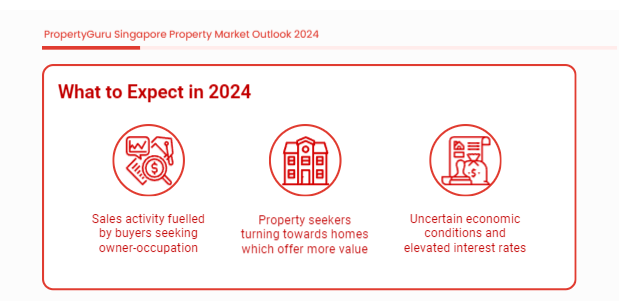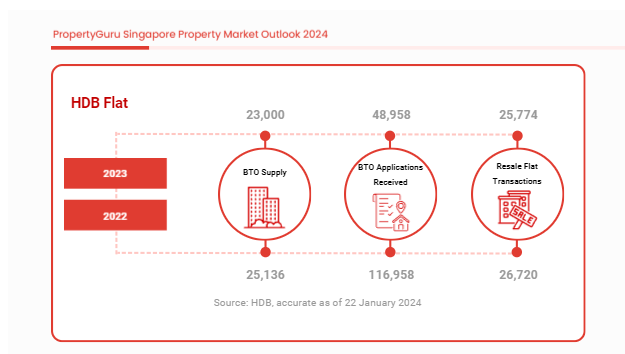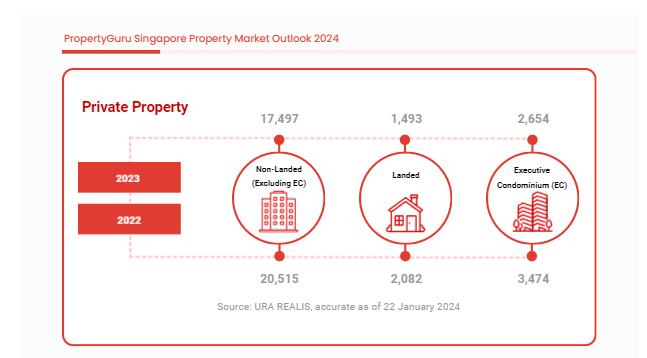Why the property market in Singapore is resilience
The property market in Singapore has shown remarkable resilience and steady growth, even amidst global uncertainties and challenges. While other countries may experience downturns in their real estate markets, Singapore consistently remains a hotbed for property investments. But what sets the Singapore property market apart? Why does it continue to flourish, defying the odds? Let’s delve into the factors that contribute to the enduring success of the Singapore property market and uncover why it remains resilient, even in the face of adversity.
Key Takeaways:
- The Singapore property market has remained strong despite global uncertainties.
- Factors such as high demand, supply constraints, and government measures contribute to its resilience.
- An analysis of property price growth in Singapore reveals a steady upward trajectory.
- New condo launches continue to attract buyers, indicating a healthy demand for properties.
- Analysts have varying predictions for the future of the Singapore property market.

Factors Driving Condo Price Surge in Singapore
Condo prices in Singapore have been experiencing a significant surge, driven by multiple factors. These factors include:
- Higher costs and risks for developers: Developers in Singapore are facing mounting inflationary pressures and higher commissions charged by real estate agencies. These increased costs and risks trickle down to the buyers, leading to higher condo prices.
- Supply squeeze: The supply of unsold units in Singapore is shrinking, coupled with reduced land supply. This supply squeeze creates a scarcity in the market, driving up prices due to the limited availability of condos.
- Strong demand: There is a strong demand for condos from local and foreign buyers in Singapore. Local buyers, including en-bloc sellers, downgraders, and investors, are actively seeking private homes. Not factoring, foreign buyers are attracted to the Singapore market but is being put off by the 60% ABSD.
These factors collectively contribute to the surge in condo prices in Singapore, I would say it is a 50-50 whether if today is a seller’s or buyer’s market.
An Average of 3 months to sell a Condo, an average of 1-2 Month to sell a HDB.
| Factors | Impact on Condo Prices in Singapore |
|---|---|
| Higher costs and risks for developers | Increases condo prices due to passing on the expenses to buyers. |
| Supply squeeze | Creates scarcity, leading to higher prices. |
| Strong demand | Boosts prices as buyers actively compete for limited available units. |
Top 10 Best-Selling Projects for Non-Landed Private Property
Government Measures to Manage Price Spiral
The Singapore government has implemented various measures to manage the price spiral in the property market effectively. These measures are aimed at ensuring stability, affordability, and sustainable growth in the housing sector. Let’s take a closer look at some of the key government property cooling measures:
Raising rates for loan quantum calculation: The government has adjusted the rates for loan quantum calculation to curb excessive borrowing and prevent a property bubble. This means that buyers will have to demonstrate a higher level of financial capability to secure housing loans.
Increasing downpayment for HDB flats: In order to moderate demand for public housing, especially for larger flats, the government has raised the minimum downpayment required for HDB flats. This measure aims to ensure that buyers have a greater stake in their properties and reduce speculation in the market.
Imposing a minimum wait period for private property sellers to buy HDB resale flats: To prevent property flipping and speculation, the government has introduced a minimum wait period for private property sellers who wish to purchase HDB resale flats. This measure helps to maintain the stability and affordability of public housing in Singapore.
These government property cooling measures have had an impact on various aspects of the property market in Singapore. Let’s take a closer look at how these measures have influenced different areas:
- Rental rates: The higher loan quantum rates and increased downpayment requirements have reduced the number of potential buyers, leading to higher demand for rental properties. As a result, rental rates have remained relatively stable despite increased property prices.
- Demand for four-room HDB flats: The rise in downpayment requirements for HDB flats has significantly impacted the demand for four-room flats. As the affordability of larger flats decreases, more buyers are opting for smaller units, leading to increased demand for four-room flats.
- En-bloc asking prices: The government measures aimed at curbing speculation have influenced the en-bloc market. Developers and property owners are adjusting their asking prices to comply with the regulations, resulting in more realistic pricing.
These government measures are crucial in maintaining a stable and sustainable property market in Singapore. While they may have certain short-term effects on specific segments of the market, they are essential for long-term growth and ensuring that property remains affordable for Singapore residents.
Demand for New Condo Launches in Singapore
Despite the rising prices in the residential property market Singapore, the demand for new condo launches remains strong. Buyers are enticed by these developments’ attractive features and benefits, such as integrated amenities, close proximity to nature, and the potential for capital gains and rental income. The response to recent condo launches has been overwhelming, with projects selling more than half of their units in just a single weekend.
Buyers in the residential property market in Singapore are drawn to the unique advantages presented by new condo launches. These developments often boast state-of-the-art facilities, such as swimming pools, gyms, and tennis courts, providing residents with a luxurious and convenient lifestyle. Additionally, many new condo projects are strategically located near green spaces, parks, and nature reserves, allowing residents to enjoy the tranquility and beauty of nature in the midst of the bustling city.
“The demand for new condo launches in Singapore has been extraordinary. Buyers are impressed by the quality and design of these developments, as well as the potential for long-term returns on investment.”
Moreover, new condo launches present an excellent investment opportunity for buyers in the commercial property market Singapore. These properties have the potential to appreciate in value over time, providing owners with significant capital gains. Additionally, the high demand for rental properties in Singapore ensures a steady stream of rental income for investors.
In conclusion, the demand for new condo launches in Singapore remains strong despite the rising prices in the residential property market. Buyers are attracted to these developments’ unique features and benefits, including integrated amenities, proximity to nature, and the potential for capital appreciation and rental income. The overwhelming response to recent condo launches is a testament to the appeal and desirability of these properties in the Singapore market.

Analysis of Property Price Growth in Singapore
The property market in Singapore has witnessed significant price growth over the past five years. The URA private residential property price index has surged by nearly 40% during this period, reflecting the strong demand and market dynamics. This growth can be attributed to several factors, including the easing of COVID-19 measures and sustained buyer demand.
The easing of COVID-19 measures, such as the gradual reopening of the economy and resumption of property viewings, has played a crucial role in boosting the property market in Singapore. With more certainty and stability, buyers have shown increased confidence in investing in residential properties.
Furthermore, sustained demand from buyers has fueled property price growth. Despite the global economic uncertainties, Singapore’s property market has remained resilient, drawing both local and foreign buyers. The attractiveness of Singapore as a preferred destination for investment and homeownership has driven the demand for residential properties.
However, the high price-to-income ratios in Singapore raise concerns regarding affordability for median households. As property prices continue to rise, there is a risk of pricing certain segments of the population out of the market. This disparity can pose challenges for prospective homebuyers, particularly those looking to enter the property market or upgrade to larger homes.
A real estate economist can provide valuable insights into the complex dynamics of the Singapore property market and its long-term sustainability. By analyzing market trends, supply and demand dynamics, and economic factors, real estate economists can offer data-driven assessments and projections for the property market.
“The consistent price growth in Singapore’s property market reflects the resilience and attractiveness of the market. However, the increasing price-to-income ratios indicate the need for careful considerations to ensure housing affordability for all segments of society.” – Real Estate Economist
| Key Points | Implications |
|---|---|
| Increase in property price index | High demand and market stability |
| Easing of COVID-19 measures | Boosted buyer confidence and activity |
| Sustained demand from buyers | Attractiveness of Singapore as an investment destination |
| High price-to-income ratios | Potential affordability challenges for median households |
Appeal of New Launch Condos
New launch condos in Singapore continue to attract buyers, despite their rising sale prices and high mortgage rates. Buyers are willing to pay a premium for first-hand properties that require minimal renovations and offer move-in condition.
The convenience and potential for future appreciation are appealing factors. Additionally, the influx of high-net-worth individuals and overseas funds into Singapore further supports the demand for new launches.

Benefits of New Launch Condos
- First-hand properties that require minimal renovations
- Move-in condition
- Potential for future appreciation
- Integrated amenities and modern facilities
Why High-Net-Worth Individuals Choose New Launch Condos
“New launch condos provide high-net-worth individuals with an opportunity to invest their wealth in a stable and appreciating asset. The prestige and exclusivity associated with luxury developments attract discerning buyers who seek prime locations and premium amenities.”
– Real estate expert
| Reasons Why High-Net-Worth Individuals Choose New Launch Condos | Percentage |
|---|---|
| Prime locations | 65% |
| Premium amenities | 55% |
| Opportunity for capital appreciation | 80% |
Market Outlook and Predictions
Analysts and experts have differing outlooks and predictions for the Singapore property market. Some believe that the market may experience a decline in prices in the coming years, while others maintain that the current prices are fundamentally driven and robust. The property cycle, like any other market cycle, has periods of expansion and contraction, and the government’s measures play a role in managing price fluctuations.
“The current property market in Singapore is displaying signs of stability and resilience. Despite uncertainties and challenges, property prices have remained strong due to various factors such as limited supply and strong demand. However, it is important to note that market cycles are inevitable, and there may be periods of price correction in the future.” – Property analyst John Tan
The property market in Singapore is deeply influenced by external factors such as the global economy, geopolitical events, and market sentiment. These factors can contribute to fluctuations in property prices and market conditions. Investors and homebuyers must be aware of these factors and understand the potential risks and opportunities they present.
Key Predictions for the Singapore Property Market:
- Rising interest rates: The possibility of rising interest rates can impact mortgage affordability and investor sentiment. This may lead to a slight slowdown in demand and a moderation of price growth.
- Continued government intervention: The Singapore government has implemented various cooling measures to manage the property market and ensure affordability for Singaporeans. These measures, such as additional buyer stamp duty (ABSD) and seller’s stamp duty (SSD), will continue to influence market dynamics.
- Market consolidation: As prices have risen steadily in recent years, there may be a consolidation phase where prices stabilize or experience slight corrections. This can present opportunities for buyers to enter the market at more attractive prices.
- Shift in buyer preferences: Changing demographics and buyer preferences may influence the types of properties that are in demand. Factors such as sustainability, connectivity, and lifestyle amenities could become increasingly important in shaping market trends.
The Singapore property market is influenced by many factors, making accurate predictions challenging. Investors and buyers should approach the market with a long-term perspective, considering their financial goals and risk tolerance. Consulting with industry experts and staying updated with market trends can help make informed decisions in navigating Singapore’s ever-evolving property market landscape.
Factors Influencing the Next Bull Market
For the next bull market to occur in Singapore’s property market, several factors need to align. These include low inventory levels, strong demand, favorable interest rate environment, economic strength, and potential policy changes by the government. These factors contribute to the overall market conditions and can influence the direction of the property market in Singapore.
Low Inventory: Limited supply in the property market creates a sense of scarcity and drives up demand. When there is low inventory, buyers may be motivated to make quick decisions and compete for available properties, leading to price growth.
Favorable Interest Rates: Low-interest rates make it more affordable for individuals to borrow money for property purchases. When interest rates are low, homebuyers can secure more favorable mortgage terms, increasing their purchasing power and stimulating demand in the market.
Economic Strength: A strong economy provides the foundation for a thriving property market. When the economy is robust, consumer confidence is high, job opportunities are abundant, and individuals feel more comfortable making long-term investment decisions, such as buying property.
Policy Changes: Government policies play a significant role in influencing the property market. Policy changes that support market stability encourage homeownership or attract foreign investment can have a direct impact on property prices and market activity.
It is important to note that the interplay of these factors is complex, and their effects may not always be predictable. However, when low inventory, favorable interest rates, economic strength, and policy changes align, they create an environment conducive to a bull market in the Singapore property market.

Managing Price Declines and Market Stability
The Singapore government is committed to maintaining a stable and sustainable property market in Singapore. To achieve this, they have implemented effective measures to manage price declines and prevent the occurrence of severe bubbles or crashes. These measures are designed to ensure market stability and mitigate speculation.
One of the key characteristics of the Singapore property market is its low vacancy rates, which indicate a high level of demand and market activity. Additionally, the government has put in place policies such as the Additional Buyer Stamp Duty (ABSD) and Seller’s Stamp Duty (SSD) to regulate property transactions.
The ABSD imposes additional stamp duty on foreign buyers and investors, thus discouraging excessive speculative activity. This measure helps to create a more sustainable property market by moderating demand and preventing the market from becoming overly dependent on foreign investment.
The SSD, on the other hand, imposes penalties on sellers who sell their properties within a short period. This measure discourages short-term speculative buying and selling, promoting a more stable market environment.
The government can effectively manage price declines and maintain market stability by implementing these measures. These policies help to create a balanced and sustainable property market that benefits both buyers and sellers.
“The Singapore government’s measures play a crucial role in maintaining market stability and preventing excessive speculation.” – Property Market Analyst
| Measures | Objective |
|---|---|
| Additional Buyer Stamp Duty (ABSD) | Regulate demand and discourage speculative activity |
| Seller’s Stamp Duty (SSD) | Prevent short-term speculative buying and selling |
Conclusion : Why the property market in Singapore is resilience
In conclusion, the Singapore property market has demonstrated remarkable resilience and steady growth despite global uncertainties and challenges. This can be attributed to several factors that have contributed to the strength of the market. High demand from both local and foreign buyers, coupled with supply constraints and government measures, has created a foundation for continued growth in the Singapore property market.
While there may be differing opinions about the future direction of the property market, the government’s focus on stability and long-term sustainability is a crucial driver for continued growth. The government aims to manage price fluctuations and prevent severe bubbles or crashes by raising rates for loan quantum calculation and imposing minimum wait periods for property transactions.
As the property market in Singapore moves forward, it is essential to consider the factors that influence its dynamics. Low inventory levels, favorable interest rates, economic strength, and potential policy changes will all be crucial in shaping the next bull market. With the government’s commitment to market stability and the sustained demand for new condo launches, the Singapore property market is poised for continued growth and remains an attractive investment opportunity.
FAQ
Why is the property market in Singapore not experiencing a downturn?
The property market in Singapore has shown resilience and steadfast growth, defying global trends. Factors such as high demand, supply constraints, and government measures have contributed to the strength of the market.
What are the factors driving the condo price surge in Singapore?
Several factors contribute to the surge in condo prices in Singapore, including higher costs and risks for developers, a supply squeeze, and strong demand from local and foreign buyers.
What government measures have been implemented to manage the price spiral in Singapore’s property market?
The Singapore government has implemented measures such as raising rates for loan quantum calculation, increasing downpayment for HDB flats, and imposing a minimum wait period for private property sellers to buy HDB resale flats.
Is there still demand for new condo launches in Singapore despite rising prices?
Yes, new condo launches in Singapore continue to attract buyers despite their rising sale prices and high mortgage rates. Buyers are willing to pay a premium for first-hand properties that require minimal renovations and offer move-in conditions.
What has been the analysis of property price growth in Singapore?
The property market in Singapore has experienced strong price growth over the past five years. The URA private residential property price index has increased by nearly 40% during this period.
What factors contribute to the appeal of new launch condos in Singapore?
The convenience and potential for future appreciation, as well as integrated amenities and proximity to nature, are appealing factors for buyers of new launch condos in Singapore.
What is the outlook and predictions for the Singapore property market?
Analysts and experts have differing outlooks and predictions for the Singapore property market. Some believe that the market may experience a decline in prices in the coming years, while others maintain that the current prices are fundamentally driven and robust.
What factors can influence the next bull market in Singapore’s property market?
Factors such as low inventory levels, strong demand, favorable interest rate environment, economic strength, and potential policy changes by the government can influence the direction of the property market in Singapore.
How does the Singapore government manage price declines and ensure market stability?
The Singapore government aims to achieve a stable and sustainable property market by implementing measures such as low vacancy rates, high additional buyer stamp duty (ABSD) for foreign buyers and investors, and seller’s stamp duty (SSD) penalties for short-term property transactions.
What is the overall state of the property market in Singapore?
The property market in Singapore has shown remarkable resilience and steady growth, even amidst global uncertainties and challenges. Factors such as high demand, supply constraints, and government measures have contributed to the strength of the market.














